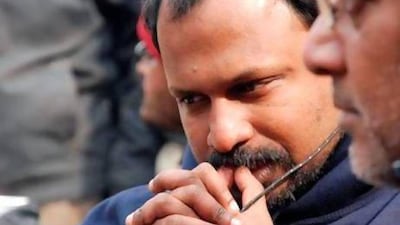One of India’s rising cinematic stars has declared that his contemporaries should take more responsibility for the quality of the films they make.
“Bollywood is just one part of Indian cinema,” Kamal K M told AFP in an interview in Paris. “It is strong in the diaspora across the world and so that is why Bollywood is appreciated all over the place,” he said, adding that the slick song-and-dance routines, far-fetched plots and cheesy dialogues were not representative of all aspects of life in his vast and diverse country.
Kamal, who won this year's Deauville Asian Film Festival for his Hindi/English gritty thriller I D, said that Bollywood movies were "nonsense" and even claimed that producers and directors joke among themselves that their films are "rubbish" but that they keep churning them out because "the people insist".
The Kerala-based independent filmmaker insisted that audiences are more discerning. His 87-minute documentary style feature was inspired by a real-life incident. It tells the story of a labourer who collapses at the comfortable Mumbai flat of young graduate Charu and her quest to piece together who he is. It portrays the realities of life in the city of 20 million people living at two extremes. Charu’s search launches her on a journey from middle-class privilege and security to the grinding poverty and anonymity of the city’s slums and the labourer’s fate is representative of the millions of poor rural people who flock to the cities in search of work.
Kamal said that migrants often fall ill and die or are killed without their families ever knowing what has happened to them. “That is nothing,” he said. “In any of these cities where this drastic migration is happening, that is quite common.” I D was produced on a shoestring budget and as well as the Deauville accolade, it has received top honours at the Abu Dhabi Film Festival, Torino Film Festival and Mumbai Film Festival. In August, Kamal will be presented with the 2013 Gollapudi Srinivas National Award for debut Indian directors. “The emotional impact of the film reminds people that you have to look at the person beside you, even the stranger on the street,” he said.
Follow us

